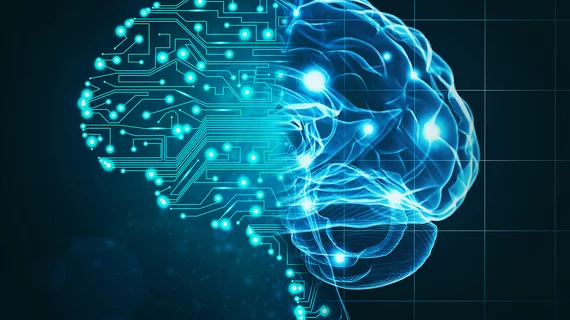Deep learning distinguishes Alzheimer’s from normal cognition
A deep learning model that simulates a clinician’s diagnostic process can accurately diagnose Alzheimer’s disease from cognitively normal patients, according to a study published July 16 in Neurocomputing.
Fan Zhang, with Henan University in China and colleagues combined two deep learning algorithms—one designed to read MRI and another to read PET images—with a clinical neuropsychological diagnosis to determine if a patient had Alzheimer’s disease, mild cognitive impairment (MCI) or was cognitively normal.
Upon testing, the platform achieved a 97% sensitivity and 88% accuracy for identifying patients with Alzheimer’s from those with healthy cognitive abilities.
“The advantage of the proposed model is that it combines the neuroimaging diagnosis with the clinical neuropsychological diagnosis,” the researchers explained. “The diagnosis process is closer to the process of clinician’s diagnosis and easy to implement.”
The researchers used data from 392 patients taken from the Alzheimer’s Disease Neuroimaging Initiative (ADNI). Of them, 200 had MCI, 101 were cognitively normal and 91 had Alzheimer’s disease. Each subject previously underwent both 18F-FDG PET and MRI imaging. Ninety percent of the dataset was used for training.
Two individual CNNs came to a separate diagnosis for both MRI and PET images by extracting features from patient scans. The diagnosis was then combined with Mini-Mental State Examination (MMSE) and Clinical Dementia Rating (CDR) scores—widely used cognitive impairment tests—to reach a comprehensive patient analysis prediction.
The results are as follows:
- For distinguishing cognitively normal subjects from those with Alzheimer’s disease, the model achieved a 96.6% sensitivity, 95.4% specificity, 98.5% accuracy and area under the curve (AUC) of 0.986.
- For identifying cognitively normal subjects from those with MCI, the network scored a 90.1% sensitivity, 91.8% specificity, 85.7% accuracy and AUC of 0.882.
- The neural network distinguished MCI patients from those with Alzheimer’s with a sensitivity of 97.4%, specificity of 84.3%, accuracy of 88.2% and AUC of 0.88.
“MCI is often misdiagnosed as the symptoms of normal aging, which results to miss the best opportunity of treatment,” Zhang et al. noted. “Therefore, the accurate diagnosis of MCI is essential for the early diagnosis and treatment of AD.
The experimental results show that the proposed multi-modal auxiliary diagnosis can achieve an excellent diagnostic efficiency.”

